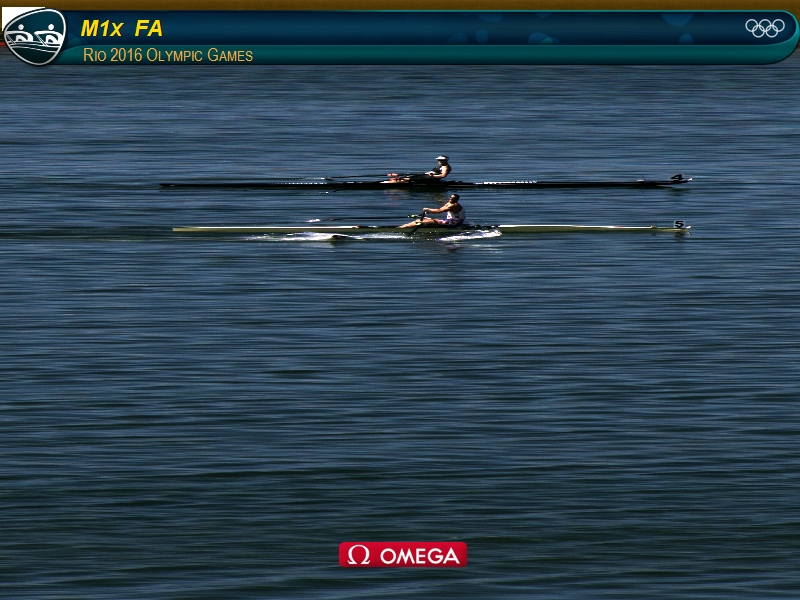
18 Jul 2024
Olympic Rewind: Rio 2016 - Riding the waves to victory
In contrast to the last few Olympic Games before it, rowing at the Rio 2016 Olympic Games took place on a natural lagoon – the Lagoa Rodrigo de Freitas. Situated under the gaze of the iconic Christ the Redeemer statue in Rio de Janeiro, and close to Ipanema Beach, the location meant rowing was closer to the heart of an Olympic city than arguably ever before, although still some distance from the main Olympic park.
Just under 550 athletes from 69 nations competed between 6-13 August, with Great Britain once again topping the medals table with three gold and two silver medals. Germany and New Zealand were joint second, each with two golds, and rowers from 21 nations reached the podium.
Rio was the last time the lightweight men’s four would be raced at an Olympic Games. Switzerland were the victors and will forever be reigning champions in the event.
Key moments
Wind and waves
A lot of the pre-Games talk had been about water quality, with plenty of lurid stories in the media about the levels of pollution in the Lagoa and other open water venues. The level of coverage enraged some rowers, with the USA’s Megan Kalmoe penning a defiant opinion piece where she declared: “I will row through shit for you, America.” But in the event, the challenge was less about what was in the water than the conditions rowers were faced with. Day 1 was calm and beautiful when everyone arrived for their pre-race paddles, and it was still calm when most of the single scullers boated for their race, but by the time they had reached the start the wind had picked up. While many of the favourites expressed their frustration with the conditions afterwards, there was one sculler – Mexico’s Kenia Lechuga, then aged only 22 – who delighted in them, storming to a heat win over eventual champion Kim Brennan. Serbia’s men’s pair later capsized. Racing was later cancelled on 7 and 10 August, with the programme being altered to squash the first two days of finals into one bumper session.

That photofinish
It will go down as the closest finish of all time. Defending Olympic men’s single sculls champion Mahe Drysdale of New Zealand rowed a well-paced race, allowing Croatian Damir Martin to lead out before pushing his bows in front in the third 500m. Into the finish Martin surged, pushed by Ondrej Synek, and drew level with an increasingly desperate Drysdale. It looked like Martin had grabbed the gold, but a huge final stroke from Drysdale took him back level. The two sat, exhausted, at the finish for some time, neither knowing who had won, before the result was given: gold to New Zealand by 0.001 seconds. Drysdale set an Olympic best time of 6:41.34, and Martin was given the exact same time, but ended up with silver.
Pull like a dog
Before 2016, Paul and Gary O’Donovan of Ireland had not made much impact in the rowing world. They had had a series of steadily improving results, including an excellent European Rowing Championships title in the lightweight men’s double sculls in 2016, but missed the podium at both World Rowing Cups II and III in the same year. In Rio, they won their heat and then made the final, and attracted huge attention from the Irish media, sensing that a medal might be in the offing. Quizzed about their tactics before the final, Paul described a rowing race as “A to B as fast as you can, close your eyes and pull like a dog”. The interview promptly went viral, with fans loving the brothers’ strong Irish accents and laid-back attitudes. On the water, of course, they were far from laid-back, and clinched Ireland’s first-ever Olympic rowing medal – silver – half a second behind France and 0.13 seconds ahead of Norway. In the press conference, waiting for the French to turn up, the O’Donovans got things rolling by asking the Norwegians the first question, and they later went viral again with another TV interview where Paul explained they had had the chance to wear their “podium pants” (tracksuits) when they collected their medals. More seriously, the medal was the beginning of real growth in Irish rowing, and the brothers used their fame wisely to help build the sport.
History-making first titles
These days, Martin and Valent Sinkovic are known as champions, but Rio 2016 was their first Olympic title. The Croatian brothers won a close men’s double sculls final, beating Lithuania and Norway to gold. This was also the first gold medal for Croatia in rowing. Magdalena Fularczyk-Koslowska and Natalia Madaj also made history in the women’s double sculls, with Poland’s first women’s Olympic title, while Kim Brennan’s triumph in the women’s single sculls was Australia’s first gold in this boat class. Great Britain picked up silver in the women’s eight after years of near-misses in the blue riband event, with their “sassy” crew rowing back from sixth place at halfway as the fast-starting Canadians faded into fifth.
Hanging up their oars on a high
An Olympic Games is always a last hurrah for some, and in Rio, that meant a farewell for legendary Canadian cox Lesley Thompson-Willie. Thompson-Willie competed at eight Olympic Games (missing Athens 2004), starting in the women’s coxed four at the Los Angeles 1984 Olympic Games and winning women’s eights gold in Barcelona 1992. Her fifth place in Rio in the eight was her last Olympics, although she continued to cox with the national team. Likewise, Rio was the last Olympics for seven-time Olympian Ekaterina Karsten of Belarus, who finished eighth in the women’s single sculls. Although Karsten seemed sure that she was done, she did continue to row for another three years until 2019. Finally, Katherine Grainger became Great Britain’s most decorated female Olympic rower with her women’s double sculls silver, ending her career on a high.

